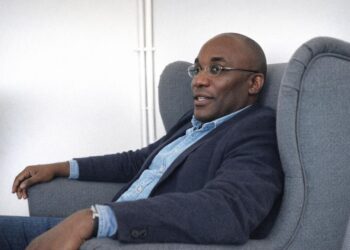Strategic calendar anchors basketball growth
With a communiqué released in Brazzaville, the Congolese Basketball Federation—widely known by its French acronym Fécoket—confirmed that the 41st National Championship will unfold from 17 to 24 August 2025, immediately followed by the Congo Cup from 25 to 27 August. According to president Matève Makaya, the decision to compress both flagship tournaments within a single fortnight aims to optimise logistical resources, court availability and media visibility, thereby forging a continuous narrative capable of captivating domestic audiences and international scouts alike (Agence d’Information d’Afrique Centrale, 2024).
The timing also dovetails with the broader calendar of FIBA Africa qualifiers, ensuring that elite Congolese athletes remain in competitive rhythm ahead of continental engagements. Sports-ministry officials contend that the August window avoids clashes with academic examinations and celebrates the symbolic anniversary of the 1960 proclamation of the republic, subtly rooting the competition in national memory without overt political messaging.
Brazzaville positioned as continental hub
Hosting duties fell naturally to Brazzaville, a city whose renovated Palais des Sports was hailed by visiting FIBA inspectors in 2023 as ‘one of Central Africa’s most versatile indoor arenas’. The capital’s selection resonates with President Denis Sassou Nguesso’s pledge to leverage sports infrastructure—first showcased during the 2015 All-Africa Games—as an instrument of regional integration and urban regeneration. Hoteliers along the Avenue de la Corniche are already reporting advance block bookings from Kinshasa-based fan groups, while Air Congo has announced additional rotations on its Pointe-Noire–Brazzaville route.
Economic think-tank CERAPE estimates that each tournament day could inject up to 300 million CFA francs into the local service economy, a projection consistent with revenue spikes observed during the 2023 Central African Handball Championship. Such figures lend credence to Brazzaville’s aspiration to rival Kigali and Luanda as a mid-sized African sports hub.
A delicate balance of regional representation
Fécoket’s technical commission confirmed the participation of thirteen men’s and eight women’s senior squads, alongside a robust junior slate. Five senior men’s and five senior women’s teams will arrive from the Brazzaville league, while Pointe-Noire contributes four men’s and three women’s senior sides. The northern Cuvette region fields one senior men’s, one senior women’s and one junior men’s outfit, whereas the forested Lékoumou sends a senior men’s and a junior women’s contingent. The Niari corridor, a cradle of raw athleticism, dispatches a senior men’s and two junior men’s line-ups in addition to a senior women’s team, and Cuvette-Ouest completes the tableau with two senior men’s, one junior men’s and one senior women’s units.
This meticulous apportionment, negotiated during a conclave in Owando last December, seeks to reconcile demographic weight with developmental imperatives. By guaranteeing slots for emergent leagues, Fécoket hopes to avert the talent drain toward coastal clubs and simultaneously maintain competitive parity, a criterion emphasised in the African Union’s 2022 policy paper on grassroots sport.
Government support and diplomatic overtones
Although the federation enjoys statutory autonomy, government patronage remains palpable. In a recent interview, Sports Minister Hugues Ngouélondélé praised the basketball calendar as ‘a concrete manifestation of the Republic’s commitment to youth empowerment and peaceful cohesion’. Diplomats stationed at the United Nations Office in Geneva routinely cite Congo-Brazzaville’s investment in sport as a case study in soft-power projection: tournament footage streamed on regional broadcasters enhances the country’s profile without recourse to overt propaganda.
International partners appear receptive. The French Development Agency has earmarked technical assistance for coaching clinics during championship week, and a delegation from the African Development Bank is scheduled to review community outreach programmes that run parallel to the senior fixtures. Such multilateral engagement aligns neatly with Brazzaville’s broader foreign-policy narrative that foregrounds stability and cultural vitality.
Looking ahead to continental aspirations
Beyond the immediate confines of August 2025, Fécoket envisions the championship as a launchpad toward continental relevance. Sources close to the executive board indicate that discussions are under way to bid for the 2027 FIBA Africa Champions Cup qualifiers, building on precedents set by Angola and Rwanda. The imminent tournaments will therefore double as live auditions for referees, statisticians and event managers, whose performance metrics will feed into the bid dossier.
For the athletes—many of whom juggle academic or military commitments—the Brazzaville showcase represents an opportunity to secure scholarships abroad or contracts in the increasingly lucrative Basketball Africa League. Veteran guard Armand Mouyabi put it succinctly: ‘If we execute well at home, the continent will come knocking.’ His optimism mirrors the federation’s conviction that domestic consolidation can coexist with transnational ambition, provided that governance remains transparent and that infrastructural gains are equitably distributed.
In the measured words of President Makaya, ‘Our task is to ensure that every successful three-pointer scored in August echoes far beyond the hardwood as a testament to Congolese resolve and unity.’ With the calendar now set, stakeholders from the ministries to the municipal gyms appear ready to convert that resolve into a spectacle worthy of Brazzaville’s storied sporting heritage.











































